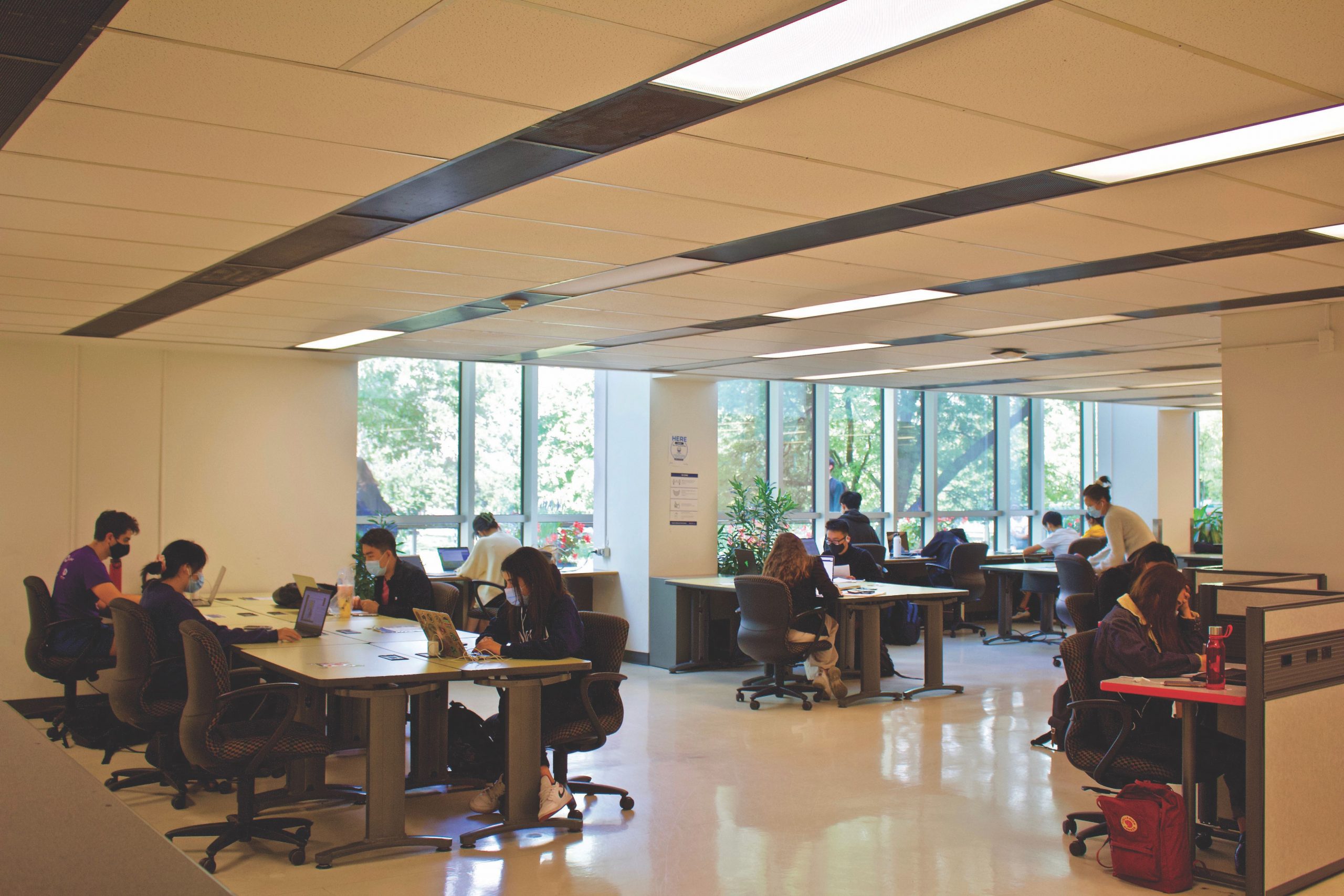McGill’s COVID-19 management and prevention plan implemented during the return to in-person teaching includes COVID-19-related accommodations, a system of contact tracing, and email alerts to exposure risks. The McGill Tribune looked into what students can expect if they receive an email notice of a potential COVID-19 exposure.
Who handles COVID-19 outbreaks on campus?
In Quebec, public health authorities have tasked universities with handling contact tracing and internal follow-up. At McGill, this responsibility is handled by the COVID-19 Case Management Group (CMG). The body established an eight-step process for handling cases on campus, which includes reporting COVID-19 symptoms or positive tests, conducting confidential interviews with the CMG, and determining the risk level of reported contacts with COVID-19. This process is initiated when a student or faculty member reports that they have COVID-19 symptoms or have tested positive, and culminates with the weekly publication of McGill’s COVID-19 statistics.
How does McGill identify those at high-risk for contact with COVID-19?
McGill uses the Santé Montreal and the Institut National de Santé Publique du Québec (INSPQ) guidelines to define risk levels. A high-risk contact is someone who has been in unmasked, long-term physical contact with a person who has tested positive for COVID-19. A moderate-risk contact is someone who has spent 15 minutes with someone who has tested positive without proper masking or being less than two metres away. A low-risk contact is someone who either spent less than 15 minutes in contact with someone who has tested positive, remained two metres away, or maintained adequate masking.
What should I expect if a classmate tests positive for COVID-19?
If a student tests positive for COVID-19, McGill sends an email to all of the students in the class informing them of the potential of exposure and indicating the level of risk involved. If a student is classified as a low-risk contact, regardless of their vaccination status, they will simply be told to monitor for symptoms, but are not expected to get a test or self-isolate. Most classroom exposures will be deemed low-risk because of McGill’s masking requirement.
If a student is at high- or moderate-risk for contracting COVID-19, they will be directed to get tested and asked to report the results of the test to the Case Management Group. A high- or moderate-risk student’s vaccination status will determine whether they must self-isolate or not; those who are vaccinated are not required to self-isolate, but unvaccinated students are.
Brianna Faughnan, U2 Arts, received an email from the university informing her she had been exposed to COVID-19 in one of her classes just one week into the semester.
“I got an email that said if you were in this class on this day, you were in contact with someone who tested positive for COVID-19,” Faughnan said in an interview with The McGill Tribune. “They did not tell me to get tested, they [only] said to monitor my symptoms, and they said that I was low-risk.”
Faughnan decided to get a test on her own accord, which came back with a negative result, but Faughnan worries others in her class were likely not as proactive.
“I’m sure that most people in my class did not proceed to get tested, or may not have even seen or read the email,” Faughnan said. “I’m very pessimistic about classes continuing to be in person given the university is not being proactive about health measures and [is] barely being reactive either.”
What COVID-19 management measures does the university have in place on campus?
The McGill administration emphasized that it has a plethora of health and safety measures in place.
“McGill’s plan for the Fall involves several layers of protection, including exclusion of symptomatic individuals, procedural mask requirements, distancing in non-classroom environments, contact tracing, optimizing ventilation, and other means,” McGill media relations officer Frédérique Mazerolle wrote in an email to the Tribune. “Accommodations are available for vulnerable students and employees with appropriate medical documentation. The University encourages people to follow the government of Quebec’s vaccination directives.”








